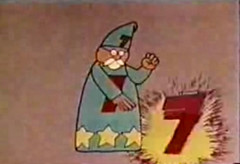Look out
Imagine you are building the perfect lookout tower, a structure that will allow the best views of objects both up close and far away. All your effort goes into perfecting the view from inside the tower—it is as though you were building it from the inside. How the tower might appear to anyone not looking out of it has no influence on your work; the external structure follows entirely from the view outward.
This thought experiment occurred to me while I was looking for a way to make aesthetic sense of a sculpture at the Yale Art Gallery, an earthenware replica of a three-story temple whose manifest sensible form’s insistence on squares I found horrifying and inhuman. Perhaps it is uncharitable for interpretation of an artwork to begin by rejecting what it looks like (though such a strategy might be less crude than starting from the assumption that the work must have looked good to whoever made it). But imagine my hypothesis were true—if the form of the temple were nothing but the outer shape supporting an act of vision, and only accidentally a visible thing itself, what, then, would it mean for some second artist to exalt that form by making an earthenware sculpture of it? Locating the power of the thing in its inessential features can be gross idolatry, or it can be indirect, hermetic praise of a vision-moment that the artist recognizes cannot be made visible—if there can be no adequate representation of the thing, perhaps there is no better tribute than to name it falsely.
This thought experiment occurred to me while I was looking for a way to make aesthetic sense of a sculpture at the Yale Art Gallery, an earthenware replica of a three-story temple whose manifest sensible form’s insistence on squares I found horrifying and inhuman. Perhaps it is uncharitable for interpretation of an artwork to begin by rejecting what it looks like (though such a strategy might be less crude than starting from the assumption that the work must have looked good to whoever made it). But imagine my hypothesis were true—if the form of the temple were nothing but the outer shape supporting an act of vision, and only accidentally a visible thing itself, what, then, would it mean for some second artist to exalt that form by making an earthenware sculpture of it? Locating the power of the thing in its inessential features can be gross idolatry, or it can be indirect, hermetic praise of a vision-moment that the artist recognizes cannot be made visible—if there can be no adequate representation of the thing, perhaps there is no better tribute than to name it falsely.


9 Comments:
a good view from within the tower has the necessary corollary that all around it have a good view of the tower.
You mean the taller it is, the more visible it is. I don't think that's a necessary corollary, but it is a pretty reasonable inference. It's what Sellars would call a "material inference," e.g., from "It is raining" to "The streets will be wet." The consequent doesn't follow as a matter of strict logic; it follows because an empirical fact about a cause-effect relation is embedded in our language.
i wasn't basing my thoughts on height, but you are right. i could conceive of a lookout tower so high that it reached into space, which might not be visible, since it would be too small to see from the ground... or more mundanely, a tower on the top of a mountain overlooking a forest which could not be seen from within the forest due to a view blocked by trees.
do u think the girls' "be" earlier was 1/sided this way & the girls wanted to turn this defenceless "be" against the world, or maybe it could have been a more all around "be"
Good suggestion--I think it was "one-sided," in a way. Consciousness first is the general direction of the thing. Jossy & Jessica's imperative was not so much an instruction as a way of rapping at the window of the soul: Hello--hello--say to yourself, "I am here"--speaking the deep language of the mind to make it aware of itself. "One-sided": I guess I'm a bit of a Cartesian in that I think that whatever the neural or otherwise material undergirding of mental life, the essence or logic or grammar or what-have-you of consciousness is something else entirely. "One-sided": I'm also big on the first person and, unpopularly, in every sense of "unpopularly", privacy.
I don't take their "Be" to be an injunction to be rather than do, if that's what you're asking.
hello! there is a book about this (sort of) - Anatole Jakovski's Eros du Dimanche
Is this a sort of spam comment that could be added to any thread? The present thread is long enough that "this" cannot have a clear referent. Care to explain (both ends of) the EdD tie-in?
Carl, it's just a comment about two girls carrying out an art experiment. no-one is going to force you to read Jakovsky's book about sunday painters.
I know someone who might be very interested in reading a book about Sunday painters. An artist friend was recently thinking a lot about the figure of the amateur painter and their vision of art, as opposed to the contemporary professional artist. Will pass on the Jakovski reference.
Post a Comment
<< Home